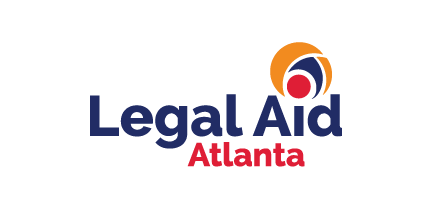Humans of Legal Aid takes its inspiration from the Humans of New York project, by the photographer Brandon Stanton. Brandon’s project started on the streets of New York City, where he approached people and asked them intimate questions about their lives. The resulting photograph and a quoteworthy snippet of the interview were posted online, and over the years, thousands of these portraits of everyday people have been collected.
In our space, we want to offer you a glimpse into the lives of the people affected by our work — our clients, our staff, and our volunteers. We interviewed each of these people with the desire to hear a deeper, fuller story of their lives. People are not just their jobs, and people are not just their issues.
We know that our staff and volunteers greet each day of this work as an opportunity to use their skills to help people, but we also want to know what drives them personally, what makes them proud, and where they call home. We know that our clients often come to us in the midst of crisis and hardship, but we also know that people are not their problems. Our clients’ stories are not only about the prospect of losing housing, but also about the places they consider home. Their stories are not just about the abuse they have suffered, but also about the people they love.
We want to listen to the full story. Yes, there is struggle, but there is also hope and love and pride. And these are the stories to which we want to give a platform, so that these stories can be told alongside the stories of struggle and strife.
Click through the tabs below to view the pictures and read the stories of some of our clients and staff.
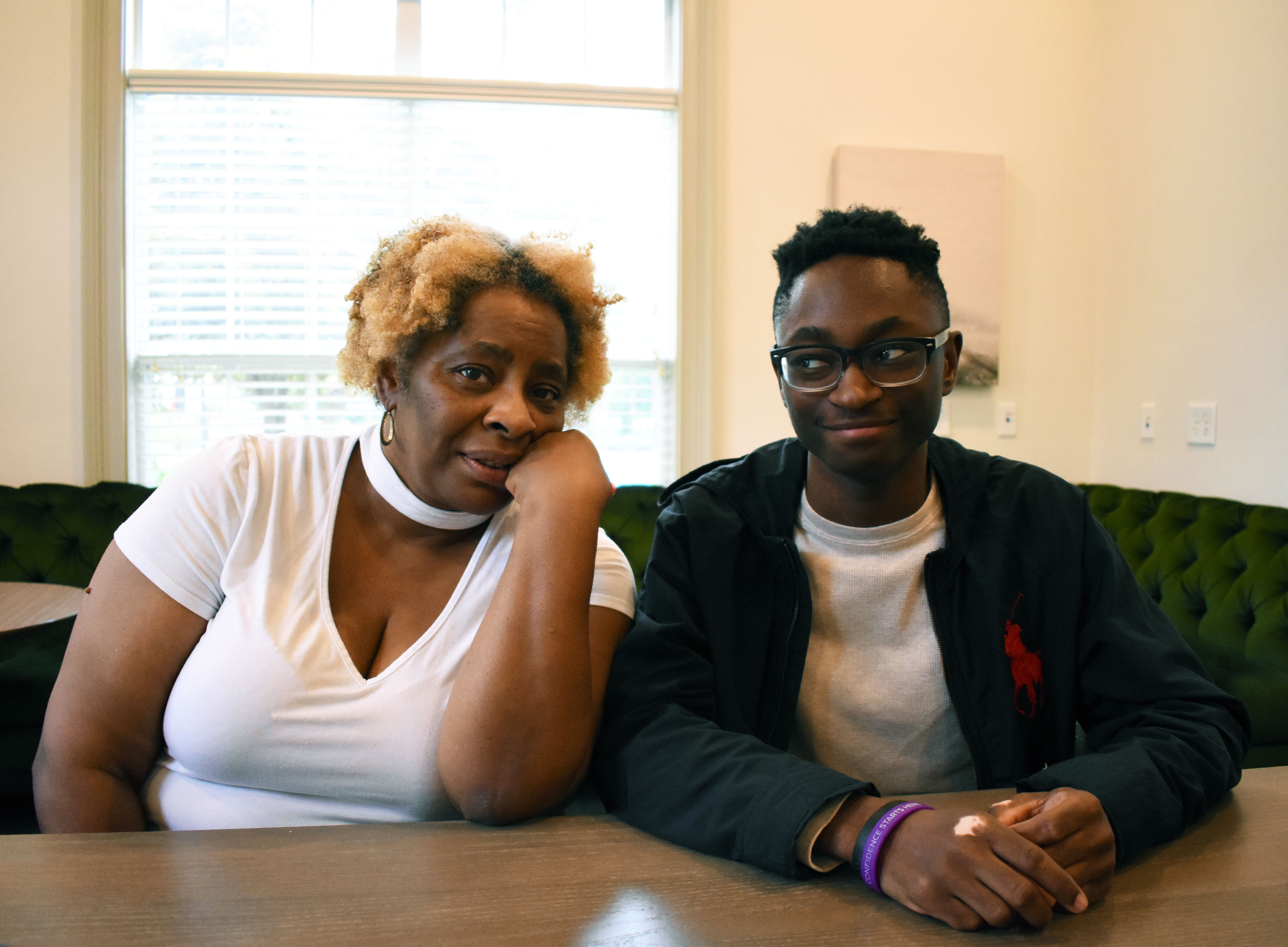
“Christopher was a tiny baby, a preemie. He weighed like one pound. He was in the NICU for months, so he has some little issues. The first open heart surgery he had, he was 8 months old. And the hole in his heart would not close, so they went in and repaired that. And he was a sickly baby. He was always in the emergency room. [Children’s Healthcare of Atlanta] Scottish Rite knew my name. They’d say, “Hey, Ms. Williams! What’s going on with Christopher?” So we were there a lot of times. And his cardiologist, one time we were there and I knew there were some other issues going on. And they were like “No, no, he’s fine.” And I was like, “No, he’s not fine. Something is wrong. You need to do an ecogram.” And they were like, “No, no, we don’t need to do an ecogram.” Yes, you’re going to do an ecogram. So they did that and found out he had a leakage in his valve. Everybody has a valve like that, and his would stay open. So then the blood would switch out or just be in his chest and it was leaking, so they had to repair that. That was when he was six. And then he had other issues. He has asthma; he’s had pneumonia for the last four or five years. Every January he’ll have pneumonia, sometimes on his birthday. He fought. I call him my little soldier, and I tell him “You are so blessed. Some people did not make it off that table.” He’s embarrassed of his scar. And I’m like, that’s just your war wound. Those are wounds to show that you fought that war, and you came through it.”
– Ms. Lanora Williams, Client of Atlanta Legal Aid
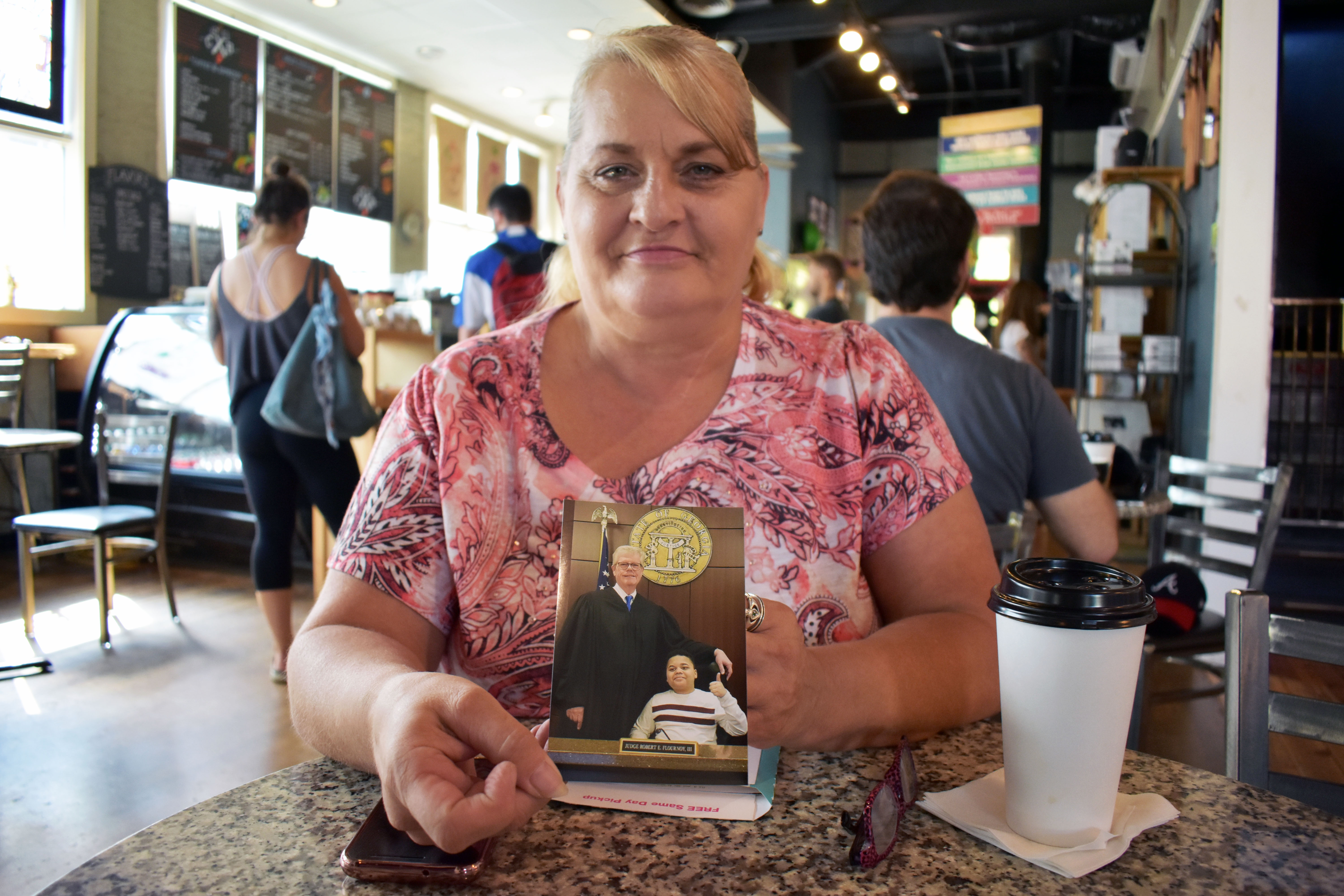
“That’s Judge Lanoy. The judge took [my grandson Sincere] back to his chamber and showed him everything, from his personal bathroom to his personal refrigerator to his view. And he stopped the court — because they were like half way through when they got to me — and he stopped and took the time with Sincere, and said, if it’s okay, I’d like for him to come to the bench with me. And [Sincere] loved it. It was a very emotional day. For Judge Lanoy to stop his work and escort us in the back like that… and one of his bailiffs said, “I don’t remember a time when he stopped court like that”… We have one of these pictures of Judge Lanoy and Sincere on our coffee table. We see it everyday.”
– Marlene Cartwright, Client of Atlanta Legal Aid’s Cobb Office
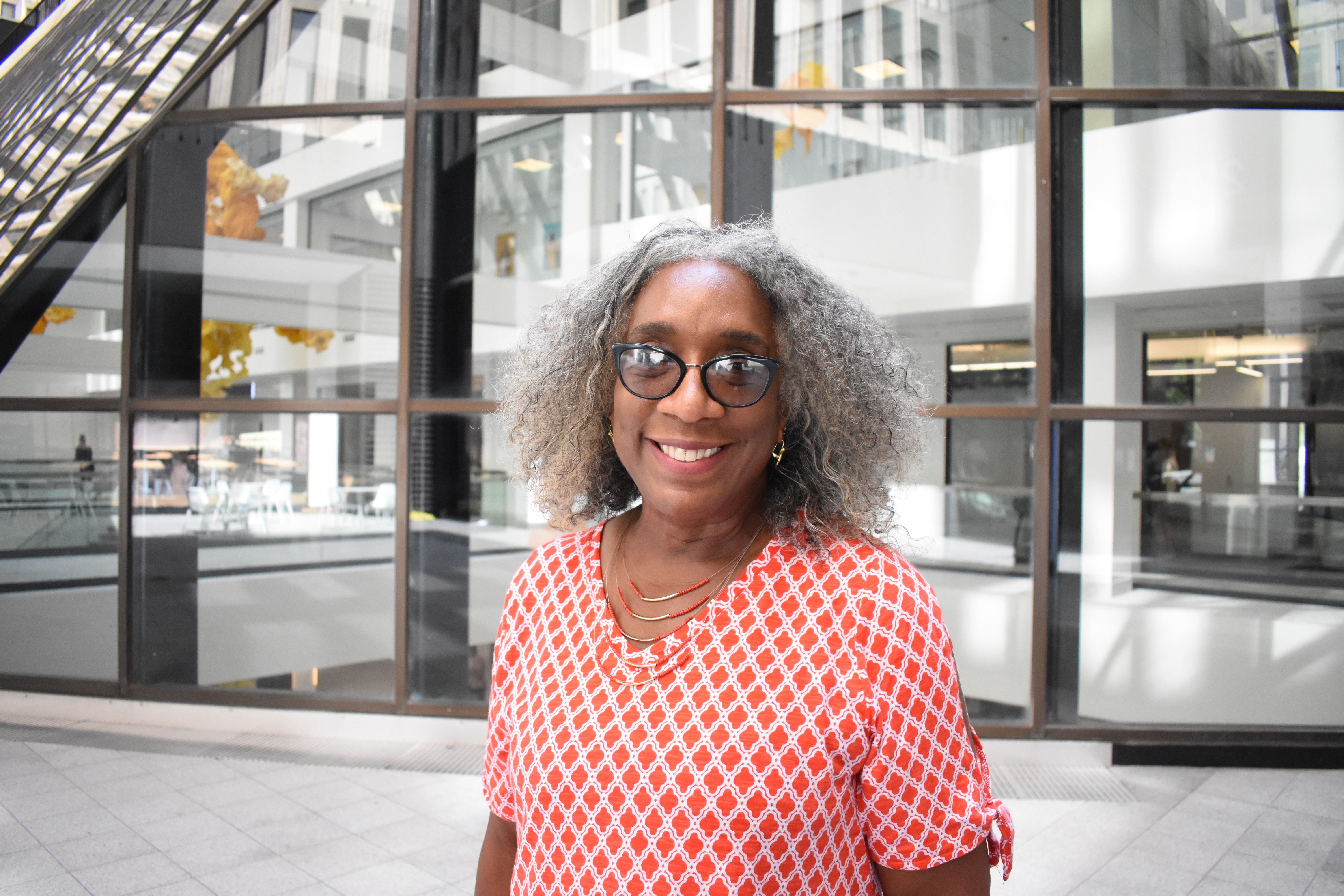
“My parents were young parents. They got married in high school and they had 5 kids. I’m the oldest and so they were supportive in the sense of whatever I wanted to do, they pretty much let me do. Whatever I said, they were like, “Oh, okay. Sure! Let’s see what we can find to help her do this.” So they were really supportive but they also didn’t know quite what to do with me. In school, it was the same way: they didn’t know what to do with me. By the time I was in 5th grade, the teachers were like, “uhhhhhhh” because I was 8 years old and in the 5th grade. The teachers were like, “Where are we going with her? What should we do?” And by the time I was in 7th grade, the principal’s proposal was that I go and help the kindergarten class and be like a co-teacher for the kindergarten class. They were afraid to let me go up to the next grade because they thought I wasn’t going to be mature enough otherwise. But I was intellectually mature enough and my parents said, “Why don’t you just let her go and see how she does?” And my principal [said], “Well, I don’t know if that’s going to be a really good plan.” And so my mom immediately was like, “Nope, she’s going.” She drove me around to several schools until finally a school said I could start high school.”
– Jacki Payne, Managing Attorney of Atlanta Legal Aid’s Kinship Care Project
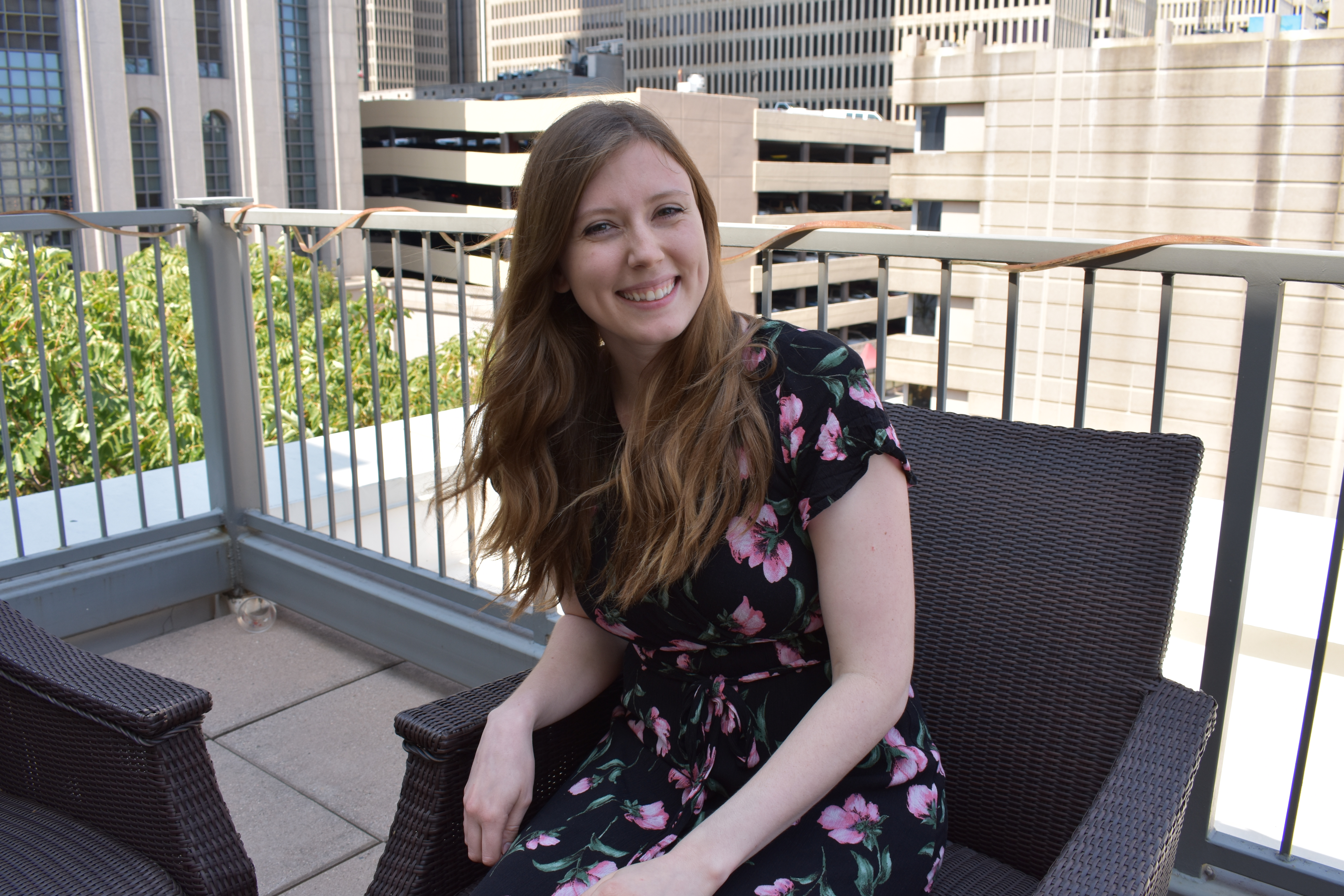
“I feel like I had a sheltered and privileged upbringing. I think when I started working for a nonprofit that provided services to domestic violence survivors and sexual assault survivors… I suddenly realized that people have had horrible things happen to them in their lives. That experience kind of popped my bubble and made me realize the world is not perfect. It’s not all roses and butterflies.”
– Whitney Stone, Former Pro Bono Volunteer Coordinator at Atlanta Legal Aid
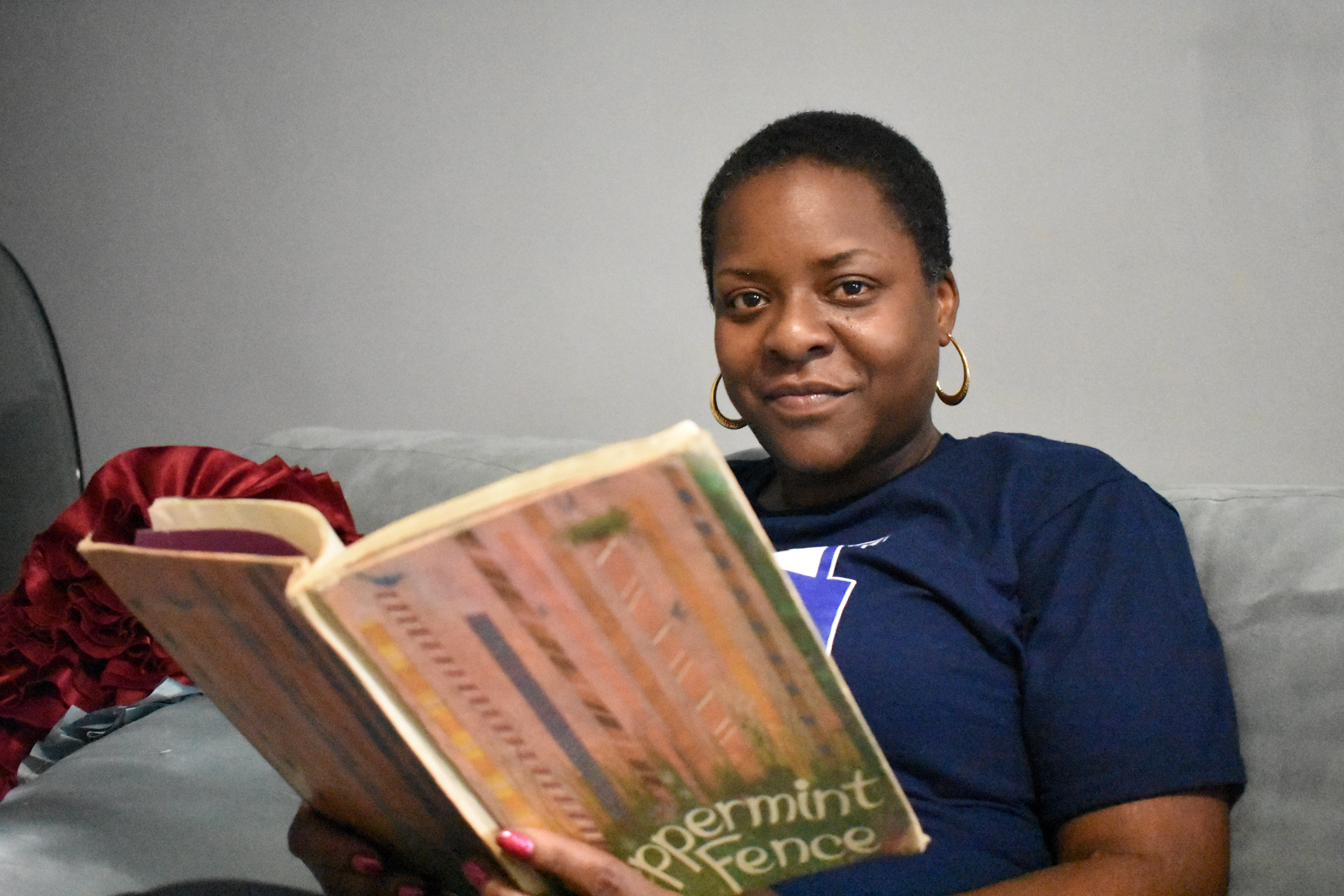
“My deceased husband has been the most influential person in my life. You know how I was saying earlier that there’s no sense in worrying? I got that from him. Because when we were young, of course we had our struggling moments and stuff, and he used to say to me all the time, “What’s the use of worrying? It’s not going to change anything.” We were best friends. Literally friends before we ever became girlfriend and boyfriend. Sometimes I just sit and smile and think of the advice he used to give me as a friend. He had a very strong influence on me. We met on the first day of highschool. There was Hurricane Andrew down in Miami and we were out of school for two weeks. So I was actually excited to go back to school. All of us were excited! And that doesn’t usually happen. But all of us were so tired of barbecuing — and who gets tired of barbecuing? But it was crazy after Hurricane Andrew. And here it is, the first day of school, and the teacher did the roll call. I noticed him out of the corner of my eye looking and I was like “oh my god”. And then sure enough, after roll call, he stood up and he was like, “I’m Francois, your name is Jamilla right?” And I’m like “Oh god, he remembered my name!” And I thought he was just so ugly. And I’d tell my friends, “Here he comes! Hide me, hide me, hide me!” And who would have known …? We talk about that all of the time. Like who would’ve known you would have gotten married and been the best of friends? He used to tell everyone that when he saw me walk in the classroom, something told him, that’s your wife.”
– Ms. Jamilla Alphonse, Former Client of Atlanta Legal Aid
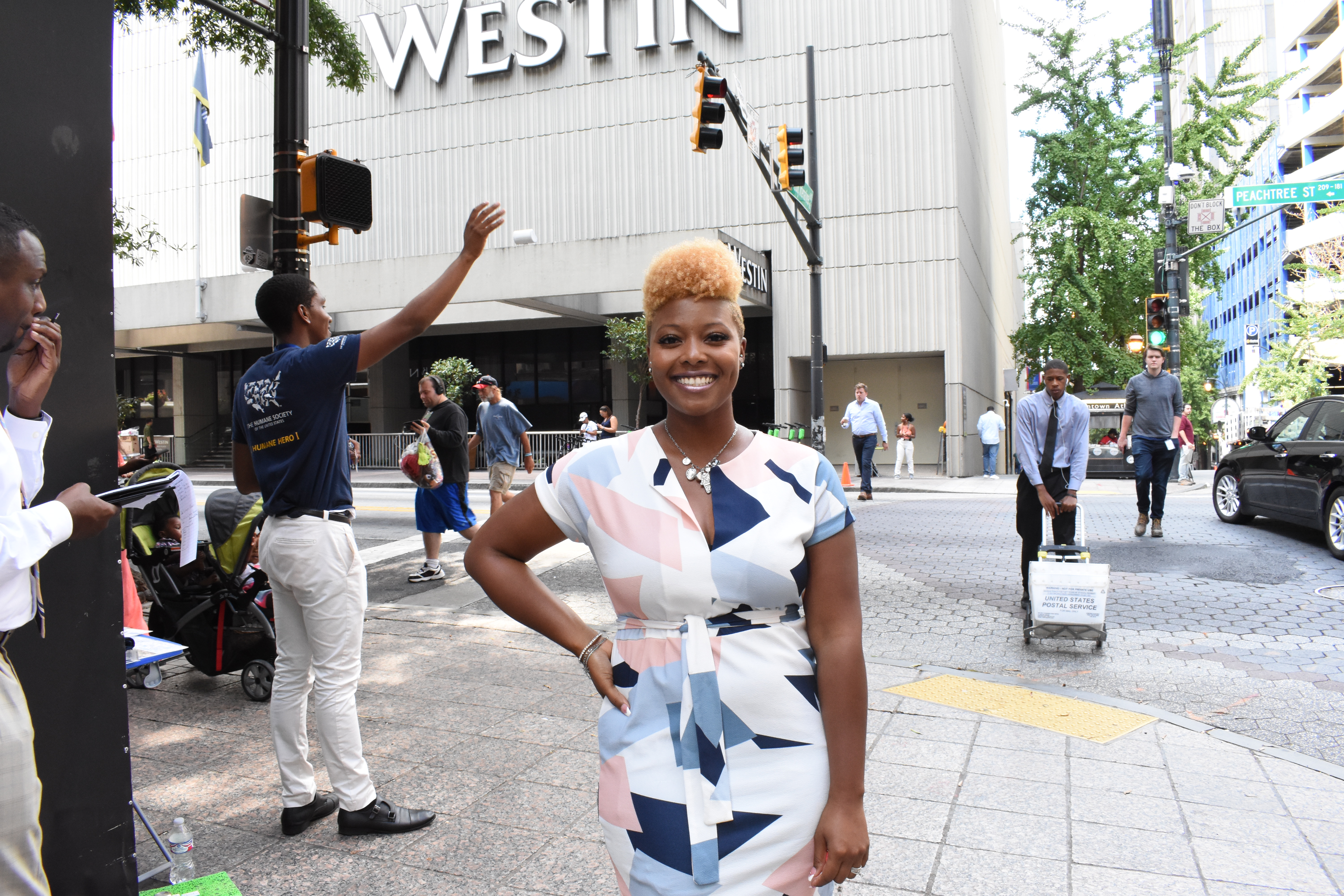
“I have a background in mental behavioral health, and that’s actually where I started. But as I started kind of maneuvering in that field, I realized that I wanted to have more of a legal perspective, in addition to mental health. I just remember being like, man, I really like what I do here, but how can I marry it to the legal side too so that I can have my hand in both? I remember when I met Michelle Jordan. She was the one who shared the internship opportunity with me, and I couldn’t believe my ears. Me? Me?? Okay! Sure! It was like a dream come true. I didn’t know what I was going to be doing — like getting coffee? They were like nope! Here’s a stack of work. Here’s some training. Let’s get to it. And I just knew. I was like, I want to work here. I want to be a part of this.”
– Toni Bonds, Paralegal and Casehandler in Atlanta Legal Aid’s Health Law Unit
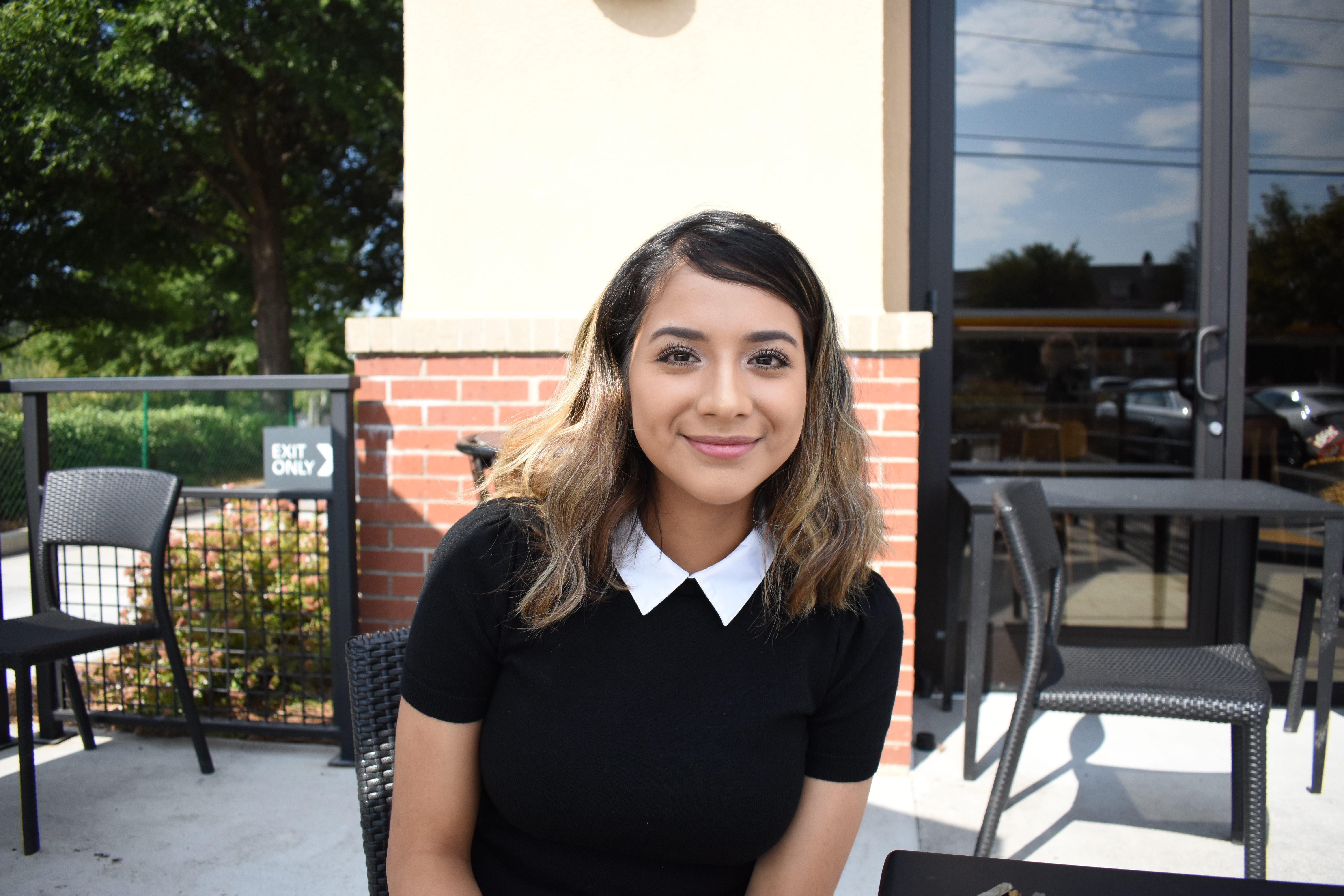
“When I went into foster care… that’s when it started to really feel like home. When I turned 21, I didn’t want to get out [of foster care]because they always made it feel like home, even when I was going between different homes… but when I came here and had an actual stable home in foster care — it was like a group home — that’s when it felt like home. When I was living with [my grandparents] in Mexico, my grandpa was always sick so family wasn’t always around. My aunts took care of me, but they were always working so there wasn’t someone always there for me to look up to or to teach me the things I may want to do when I grew up. So when I came here, I started noticing a lot of things, not by someone else but through myself. I like to read a lot so I feel like that’s one thing that really helped and enlightened me to learn about a lot of things that were outside of my world.”
– Viridiana Garcia, Client of Atlanta Legal Aid’s Gwinnett Office
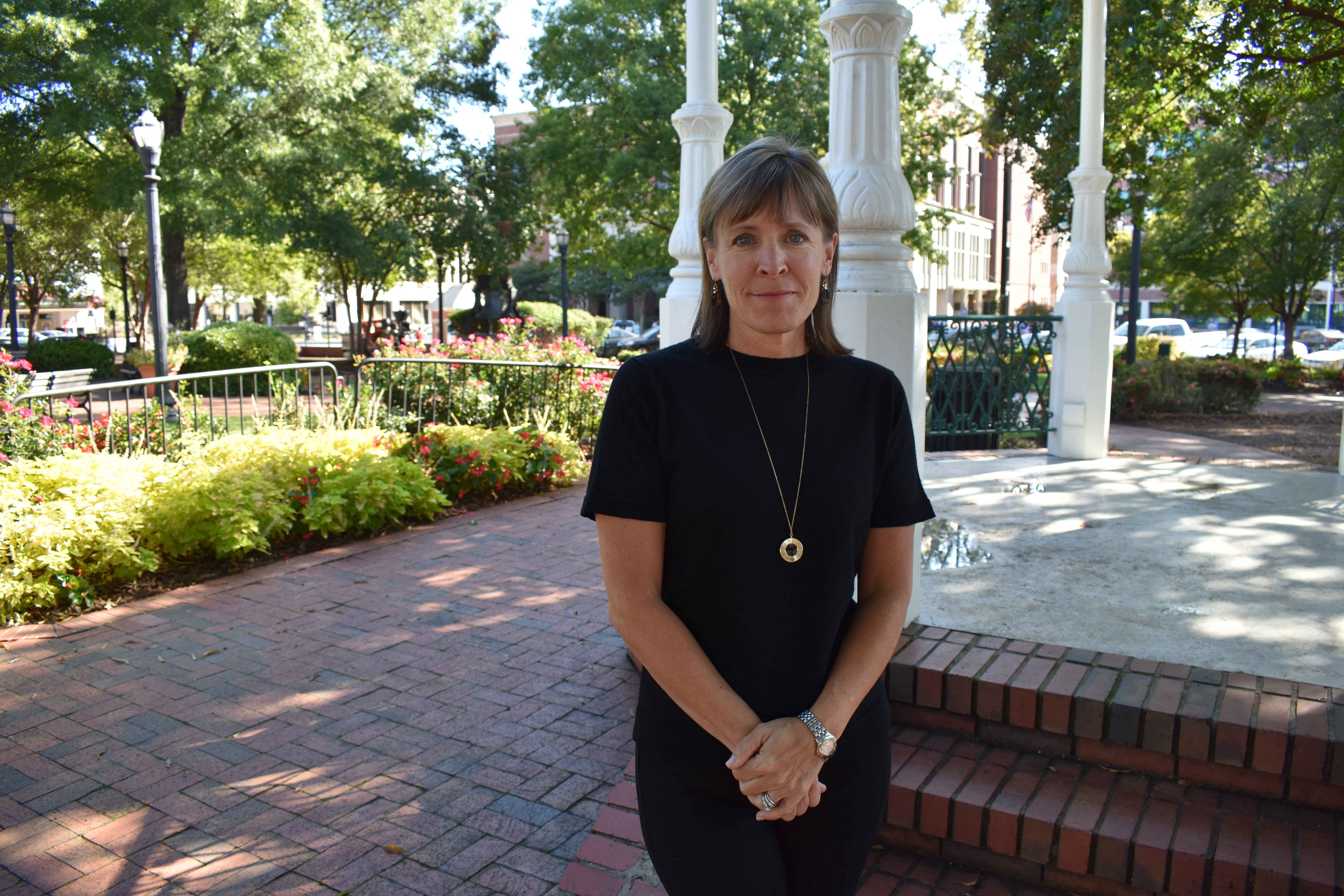
“I am happiest in the mornings. I love the sunrise. I love waking up before everyone else and just having that quiet part of your morning with a cup of coffee. There’s no such thing as a perfect day but if it can start like that where I can have time to start with some peace and quiet, then that makes me very happy.”
– Cathy Waddell, Attorney and Pro Bono Coordinator at Atlanta Legal Aid’s Cobb Office
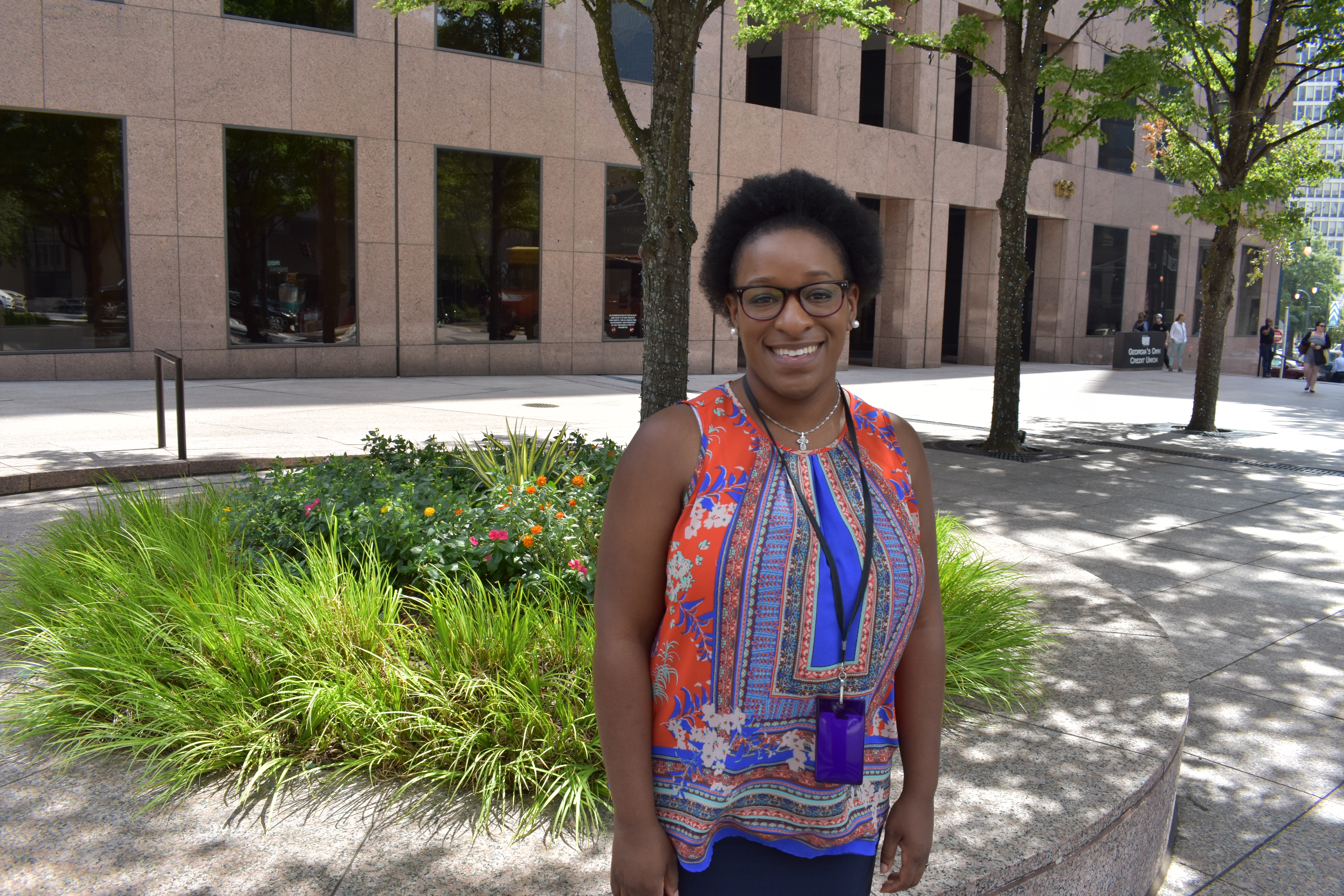
“I like that Atlanta is more diverse than most cities… I’m from a quiet town that’s not really very diverse, so it’s nice to be in a place where both people who look like me and also those who don’t look like me are actually owning businesses and in high-up spaces. Going to court in Fulton County, most judges that I see look like me and that’s not normal everywhere that you go. So I think that camaraderie and feeling that you have more options was really helpful for me. I appreciate that part about living in Atlanta.”
– Courtney Dixon, Attorney in Atlanta Legal Aid’s Downtown Domestic Relations Unit
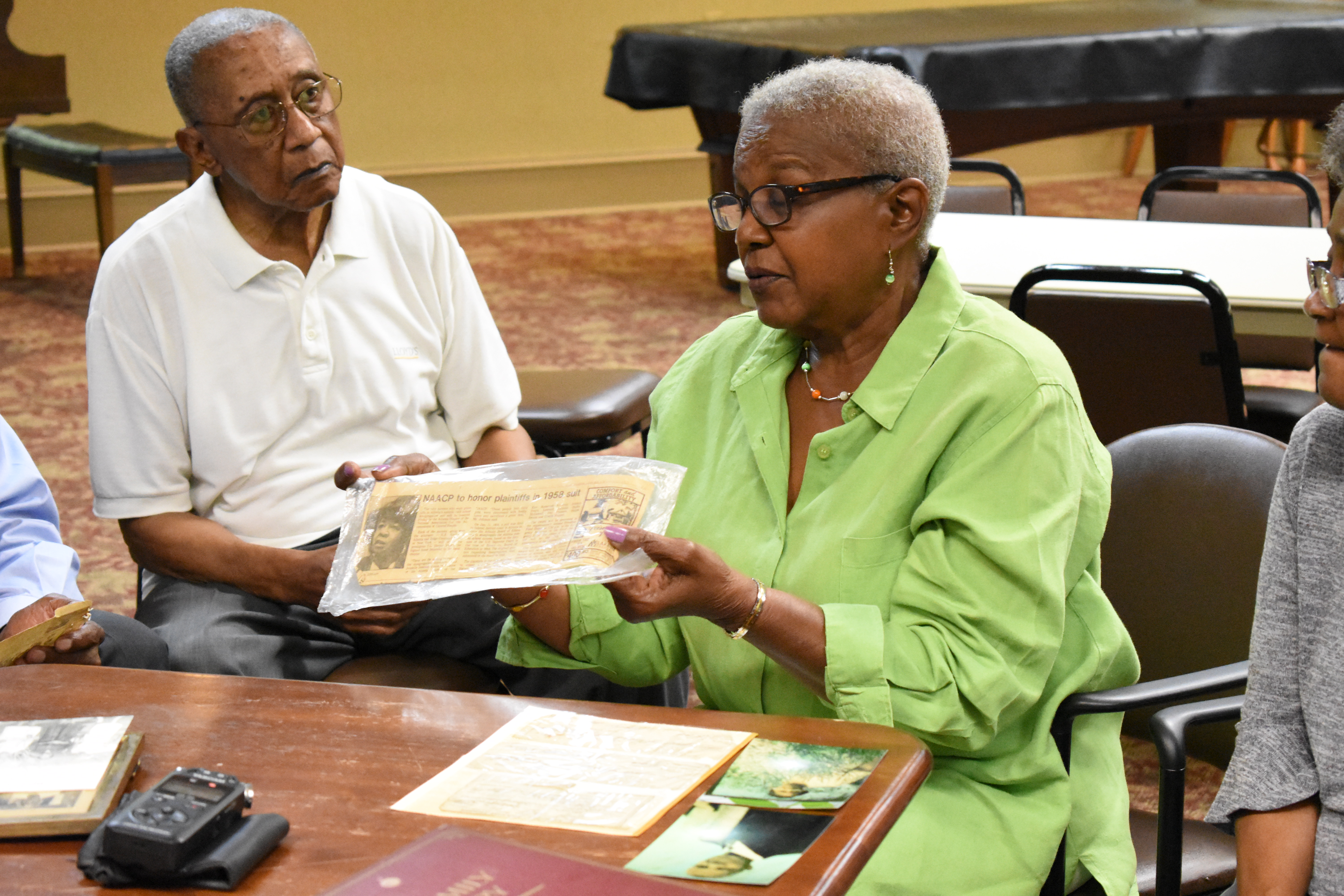
“This picture is part of a newspaper article… This one is from the Atlanta Journal Constitution. This is dated 1964. They were honoring the plaintiffs in the 1958 suit. That’s where you had 9 parents who were plaintiffs in Atlanta’s historic 1958 school desegregation suit, getting them to comply with the Brown decision, and as I mentioned, two of those plaintiffs were residents on Herring Road: my father, Leonard Jackson, and her father, Charlie Pierce.” –
“Were your fathers politicians?
“No, they were not politicians. They were fathers who wanted a good education for their children, and other children in that neighborhood. And you could definitely say they were community activists. You could say they were activists period. Because what they were doing was going to impact all of the children in the city, not just those of us in Cascade Heights. And back then, trust me, my sister and I could tell you, it took a toll. It was really risk-taking, because that’s when whites would ride by at night and shoot into the houses.”
– Phyllis and family, former client of Atlanta Legal Aid
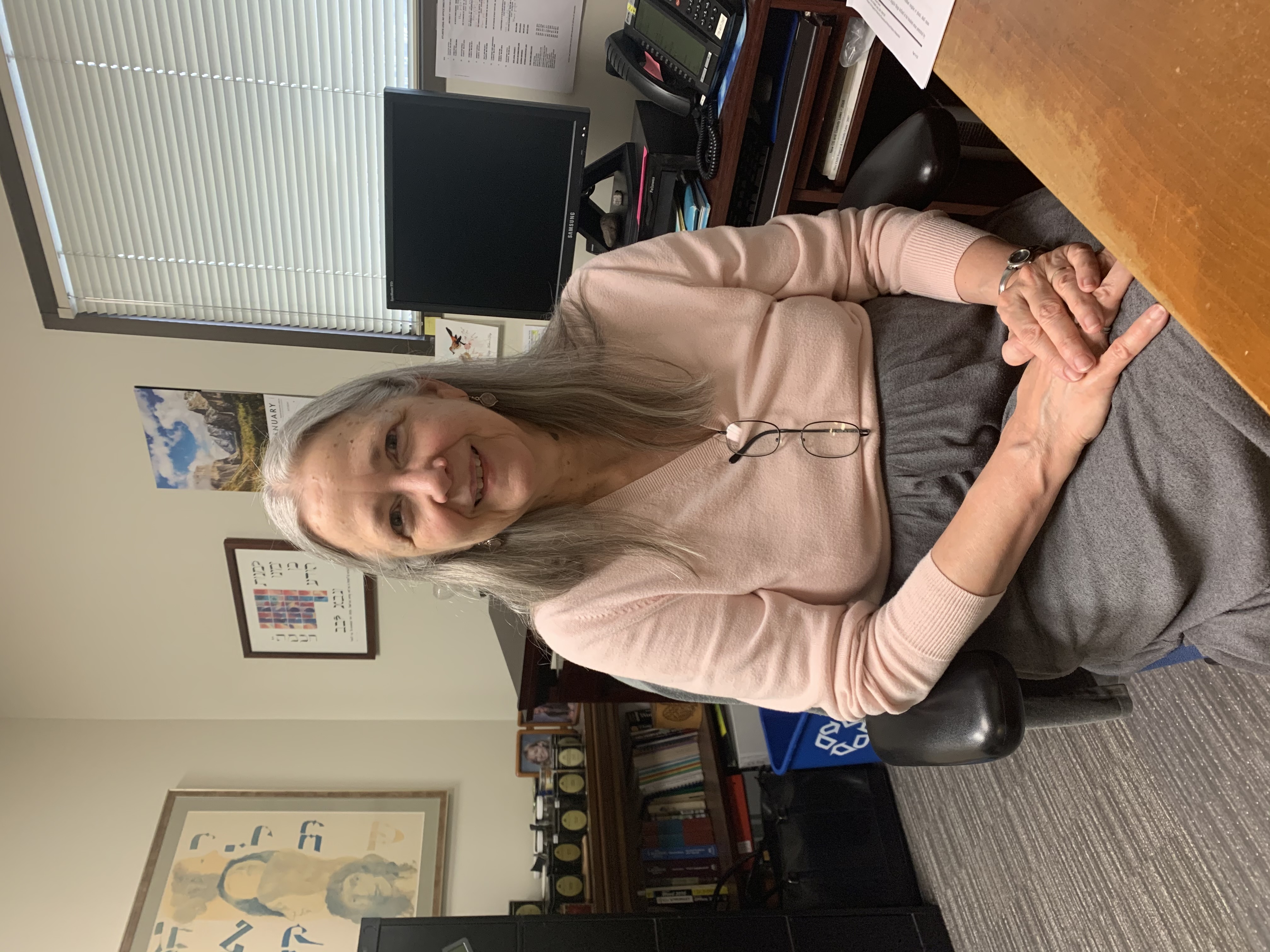
“I think family law matters so much to people because we all have families, either the family we came from or the family we created ourselves, or both. They are just super important parts of our lives. So when things need to happen in the legal system about people’s families, it’s always really important.”
– Deborah Johnson, Attorney at Atlanta Legal Aid’s DeKalb Office
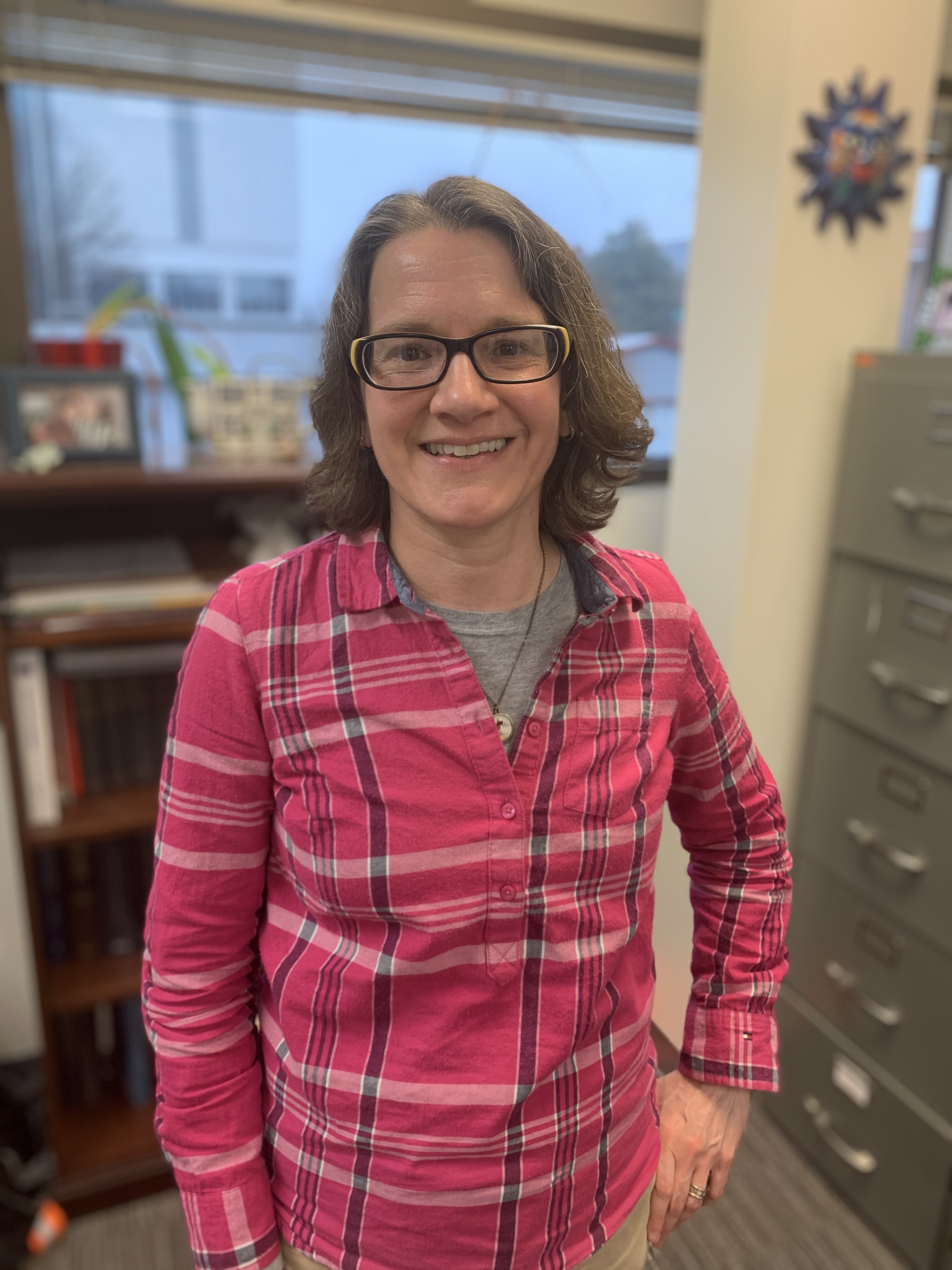
“Some of the experiences that I carry with me and that definitely impact my work have to do with growing up with a single parent, especially when I was a teenager. There was a lot that was challenging about it and we didn’t really have any money. So, I understand what it’s like to live on the financial edge and feel like you don’t have a lot of control over your circumstances.”
– Angela Riccetti, Managing Attorney of Atlanta Legal Aid’s DeKalb Office
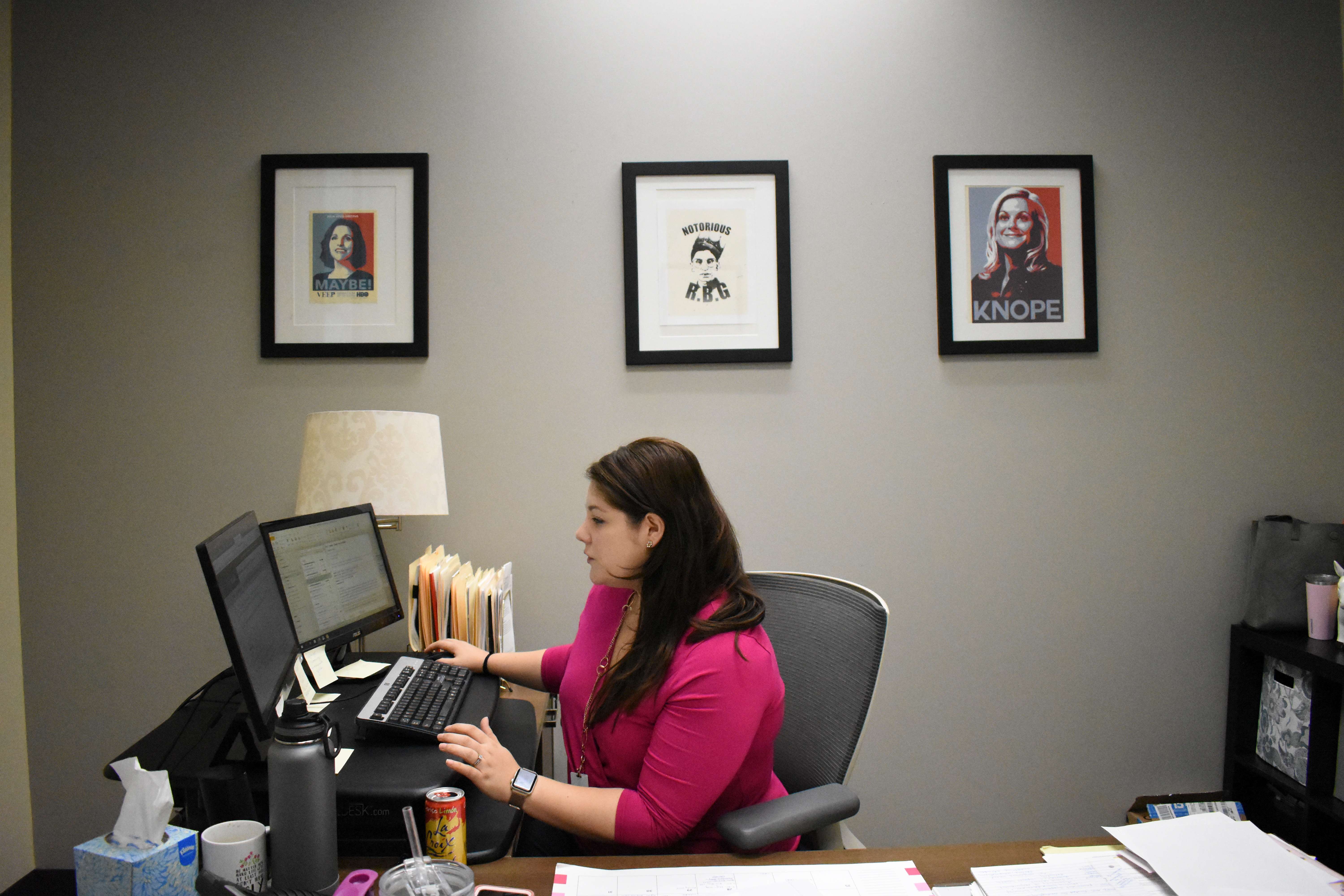
“When I’m not here, I’m trying to keep two children alive. I have two small children at home. One just turned five. The other is almost two. I guess our life is kind of frantic. My husband is also an attorney. So we don’t get a lot of sleep. We have hobbies, but there’s not a lot of time for them. So right now we’re just kind of white knuckling our way through life, but it is a crazy ride. I guess I would describe myself as tired and busy, but thankful. This year, school started Monday. And my daughter’s birthday was Wednesday; she turned 5. And her party is tomorrow. It’s hard to manage everything. It’s difficult to make sure you can drop them off in time. And then you don’t want to leave work too early to pick them up because you’ve got work to do, but you don’t want them to be the last kids at pick-up. It’s a difficult balance that is hard to achieve, and I don’t achieve it. I mean, I don’t think anybody does. Somehow you just have to make it work. You can’t do it all. You can’t have it all at the same time. It’s like a marriage. A marriage isn’t 50-50. Some days it’s 90-10. Some days it’s 80-20. It’s the same way with parenting. I mean, there are some days when my kids don’t get the best of me, and I don’t love it. But there are days that my coworkers don’t get the best of me, because it’s just not possible to do it all.”
– Stefanie Sparks, Managing Attorney of Atlanta Legal Aid’s Health Law Unit
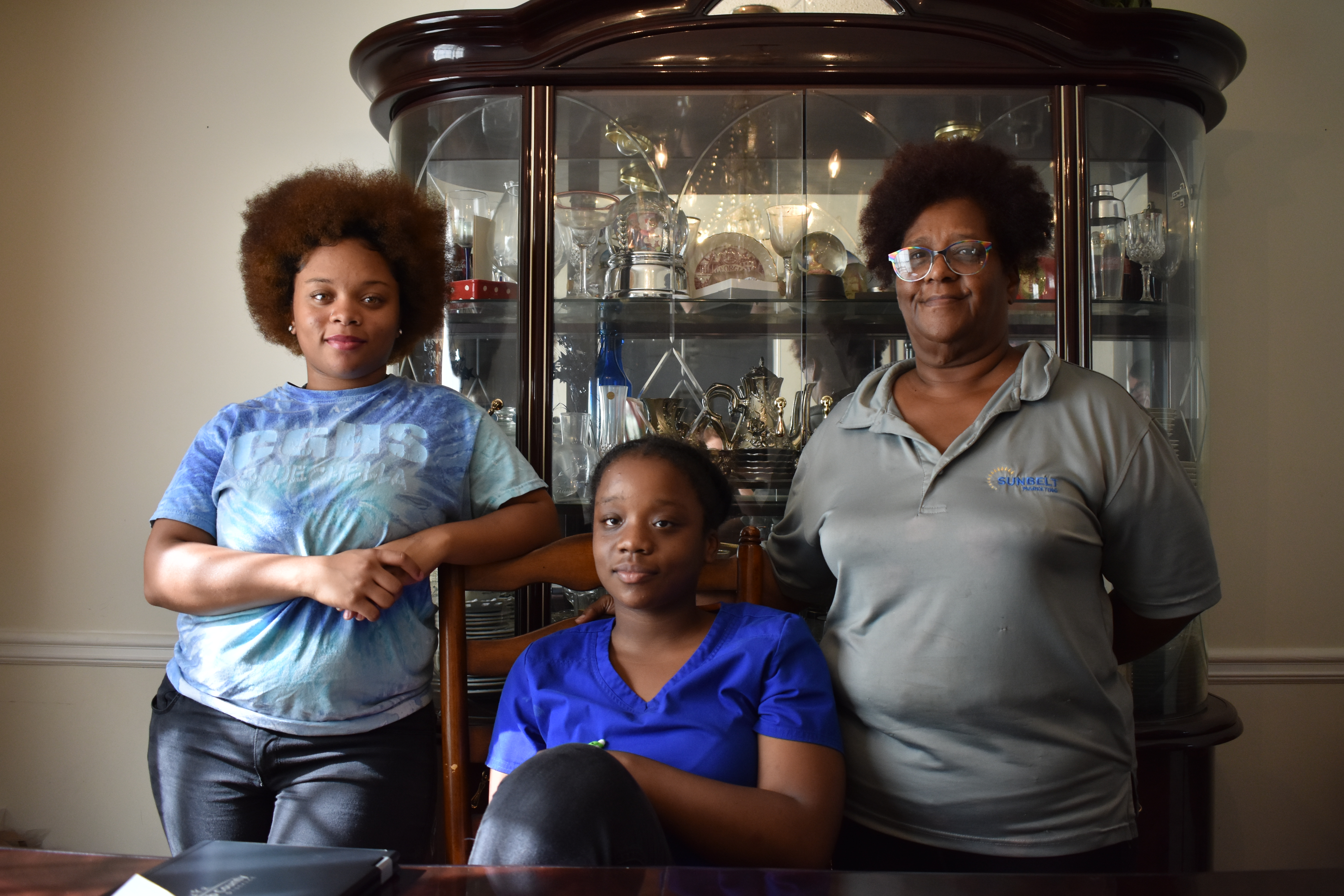
That’s what I love about it. They didn’t rush me off. They had concern about Chasity. It wasn’t about me. It was about Chasity. They had concern for her and they never dropped it. And it’s been going on and on and it’s still going on… It’s a team thing. I’m just sitting there watching them work together at the table. And everything was on point. I’ve never seen anything like that in my life… We held strong together. That’s what really brought it on in.
– Brenda Tuner, client of Atlanta Legal Aid
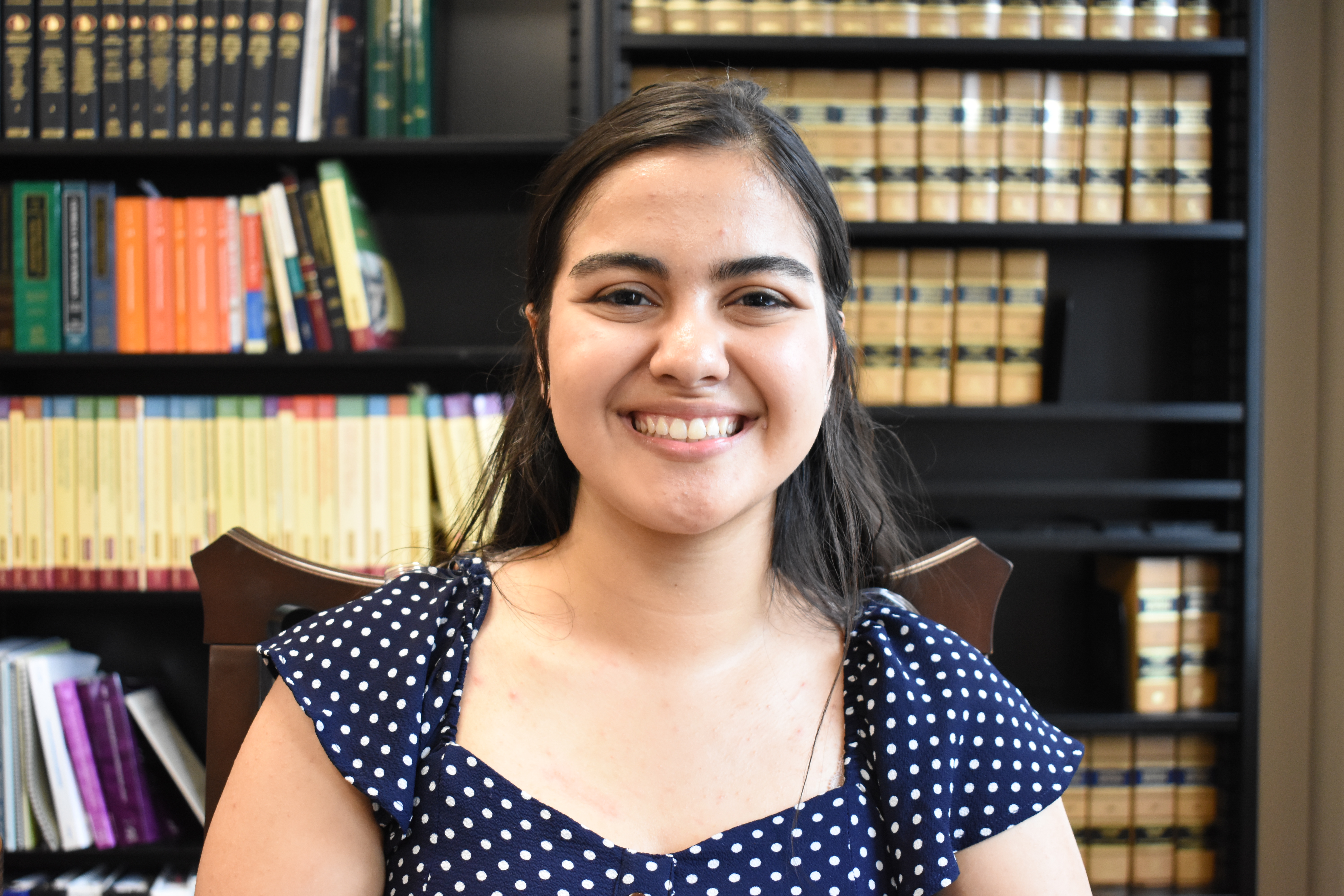
“We all know we’re humans and we all have feelings, but when you come out of a country that doesn’t have the best reputation, even with your own people, like Arab people, you’re seen as a foreigner. And it’s destructive. So we had to really push ourselves. We had to be the best version, otherwise you’re just one of those Iraqis. I either want to go to law school or into diplomacy. Growing up, I was born into the chaos of the invasion of Iraq. So early on I was growing up in a distorted world — a dystopia essentially. So you know, you’ll have your politicians, your doctors, et cetera masking as heroes of the people, but they were obviously doing some not so politically correct stuff. So I’ve always wanted to help people. So for me to do it either through diplomacy or the legal field would be a great opportunity, and hopefully on an international stage. “
– Nadia, Former High School Intern at Atlanta Legal Aid’s Southside Office
